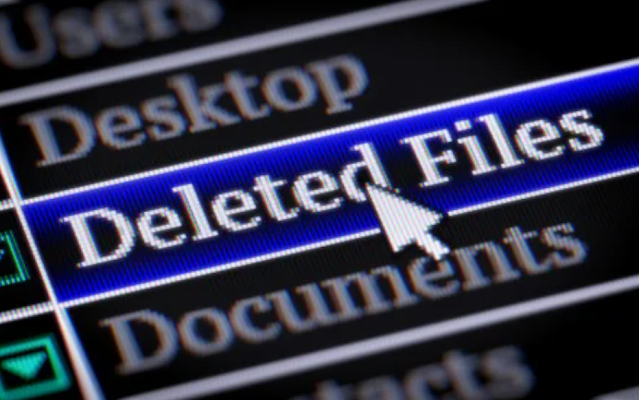The Ultimate Guide to Recovering Deleted Files from a Hard Drive
Data loss is a common issue faced by computer users, and accidentally deleting files from a hard drive can be a distressing experience. However, the good news is that in many cases, deleted files can be recovered. This comprehensive guide will walk you through the steps and methods to recover deleted files from a hard drive. We will explore various options, from using built-in features in the operating system to third-party software solutions, to help you retrieve your valuable data.
Table of Contents
- Understanding Data Deletion
- 1.1 What Happens When You Delete a File?
- 1.2 Types of Deletions
- Preventing Data Loss
- 2.1 Regular Backups
- 2.2 Exercise Caution
- Recovering Deleted Files: Built-in Solutions
- 3.1 Windows: Recycle Bin
- 3.2 macOS: Trash
- Third-Party Data Recovery Software
- 4.1 How Data Recovery Software Works
- 4.2 Popular Data Recovery Software
- Recovering Files from Backup
- 5.1 Windows Backup and Restore
- 5.2 macOS Time Machine
- Manual Recovery Methods
- 6.1 Using File History (Windows)
- 6.2 Using Previous Versions (Windows)
- 6.3 Restoring from a Time Machine Backup (macOS)
- Recovering Deleted Files: Important Tips
- 7.1 Stop Using the Drive
- 7.2 Restore to a Different Location
- 7.3 Seek Professional Help
- Conclusion
1. Understanding Data Deletion
1.1 What Happens When You Delete a File?
When you delete a file from your hard drive, the operating system marks the space occupied by the file as available for new data. However, the actual data isn't immediately removed. Until new data overwrites the space, the deleted files can often be recovered.
1.2 Types of Deletions
- Soft Delete: Files deleted from the file system, usually moved to the Recycle Bin (Windows) or Trash (macOS).
- Permanent Delete: Files deleted using "Shift + Delete" (Windows) or "Command + Delete" (macOS), bypassing the Recycle Bin or Trash.
2. Preventing Data Loss
2.1 Regular Backups
To minimize the impact of data loss, create regular backups of your important files. Use external drives, cloud storage, or backup software to keep your data safe and accessible in case of accidental deletion.
2.2 Exercise Caution
Exercise caution while deleting files. Double-check before permanently deleting, and avoid hasty decisions to prevent accidental file loss.
3. Recovering Deleted Files: Built-in Solutions
3.1 Windows: Recycle Bin
- Open the Recycle Bin by double-clicking its icon on the desktop.
- Search for the deleted files, select them, right-click, and choose Restore to recover them to their original location.
3.2 macOS: Trash
- Open the Trash by clicking its icon in the dock.
- Locate the deleted files, control-click on them, and choose Put Back to restore them to their original location.
4. Third-Party Data Recovery Software
4.1 How Data Recovery Software Works
Data recovery software scans your hard drive for traces of deleted files and attempts to rebuild them. It uses various algorithms to identify recoverable data, even if the file system marks it as deleted.
4.2 Popular Data Recovery Software
- Recuva: A user-friendly recovery tool for Windows that can restore deleted files from various storage devices.
- EaseUS Data Recovery Wizard: Supports both Windows and macOS, offering powerful data recovery capabilities for different file types.
- Disk Drill: Available for Windows and macOS, it provides a wide range of recovery options, including lost partitions and accidental deletion.
5. Recovering Files from Backup
5.1 Windows Backup and Restore
- On Windows, use the built-in Backup and Restore tool to restore files from a previously created backup.
5.2 macOS Time Machine
- If you've set up Time Machine on macOS, you can restore deleted files from a specific date when the files were still available.
6. Manual Recovery Methods
6.1 Using File History (Windows)
- For Windows users, File History allows you to recover previous versions of files if it's enabled.
6.2 Using Previous Versions (Windows)
- Right-click on the folder containing the deleted file, select Restore previous versions, and choose a version to restore.
6.3 Restoring from a Time Machine Backup (macOS)
- If you've set up Time Machine, you can use it to restore files from a specific point in time.
7. Recovering Deleted Files: Important Tips
7.1 Stop Using the Drive
- After realizing you've deleted files, avoid using the drive to prevent new data from overwriting the deleted files.
7.2 Restore to a Different Location
- When using data recovery software, restore the recovered files to a different drive to prevent overwriting any remaining traces of the deleted files.
7.3 Seek Professional Help
- If you're unable to recover your files using software, consider seeking professional data recovery services.
8. Conclusion
Accidentally deleting files from your hard drive can be a nerve-wracking experience, but with the right approach, most files can be recovered. It's essential to act quickly, use appropriate recovery methods, and exercise caution to maximize the chances of successful recovery. Regular backups and a proactive approach to data management are key to preventing and minimizing the impact of accidental file deletion. With the methods and tips outlined in this guide, you can confidently navigate the process of recovering deleted files from your hard drive.





.png)





